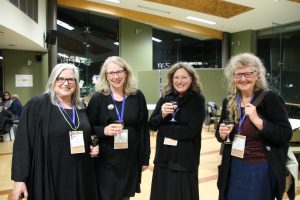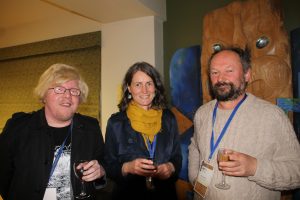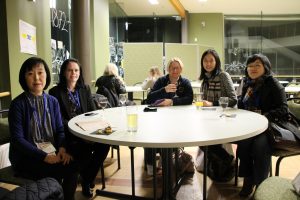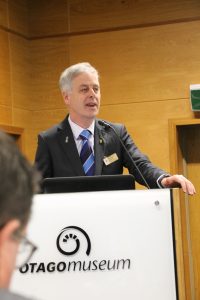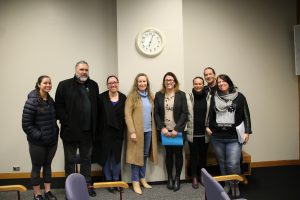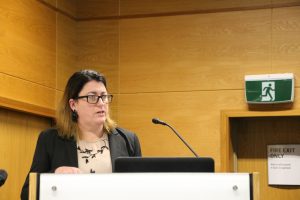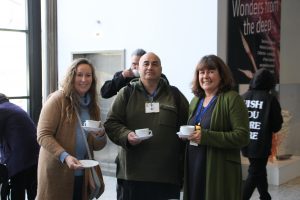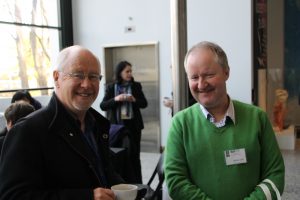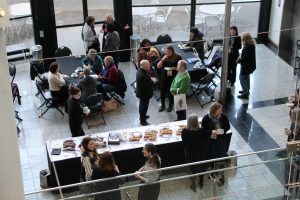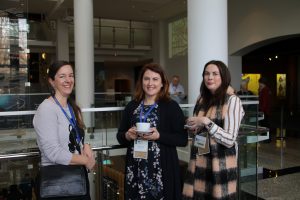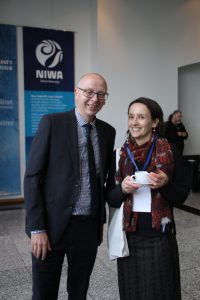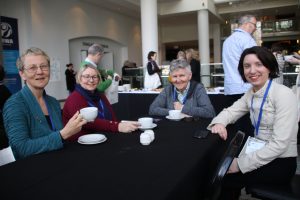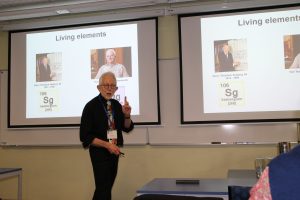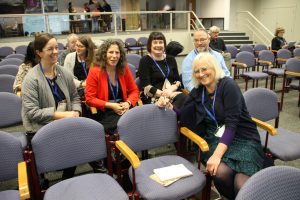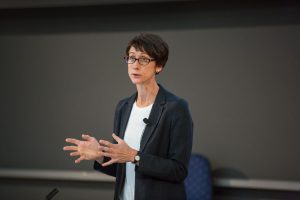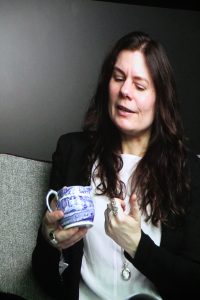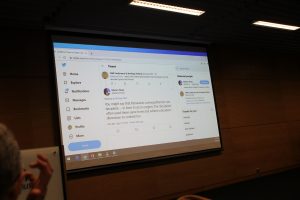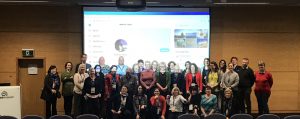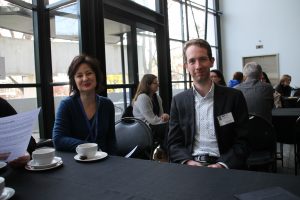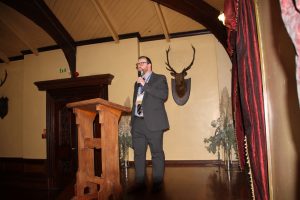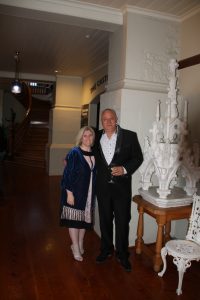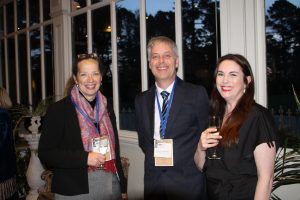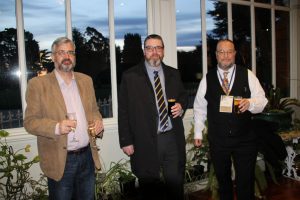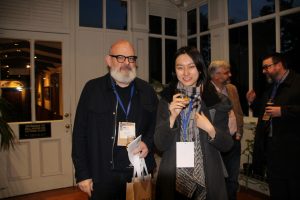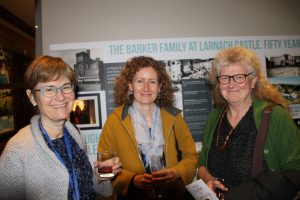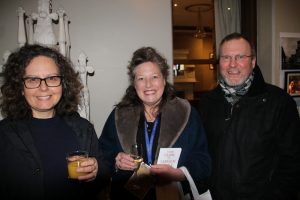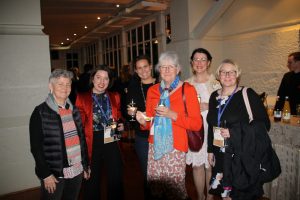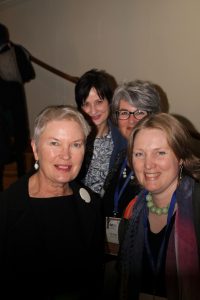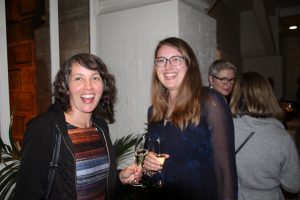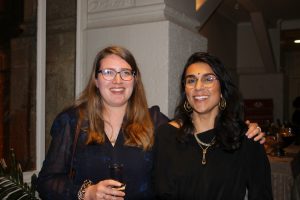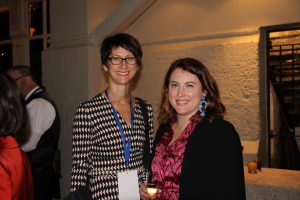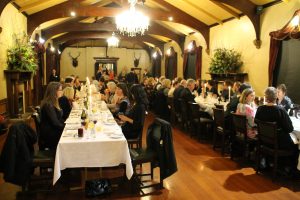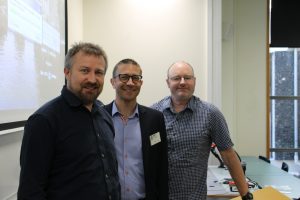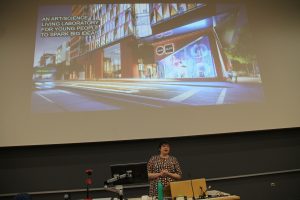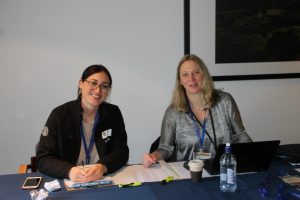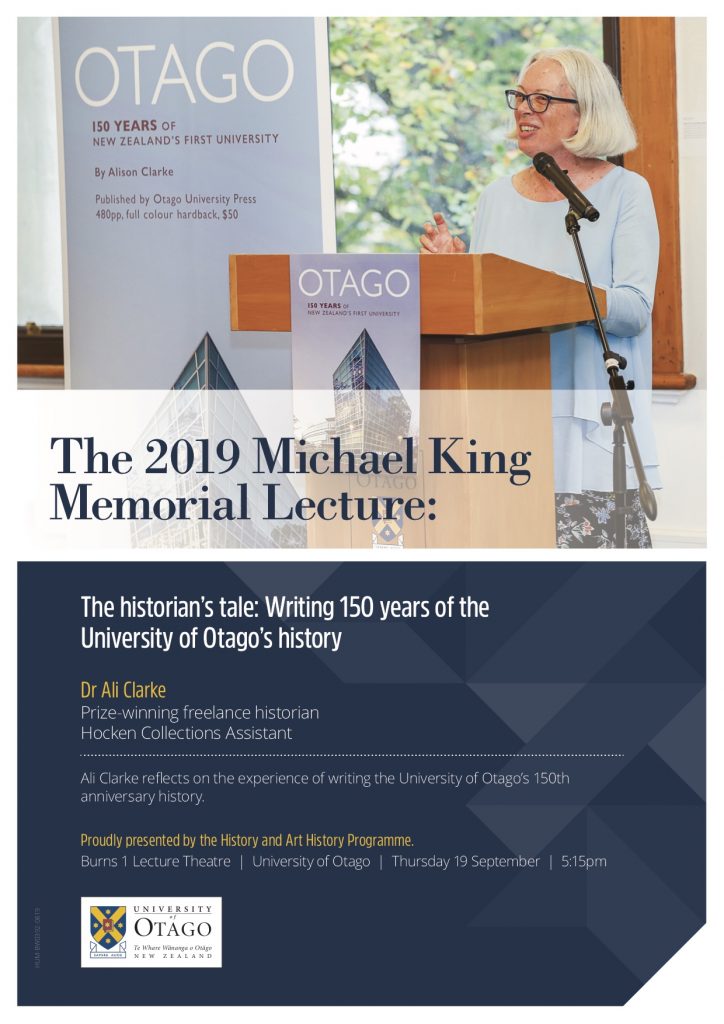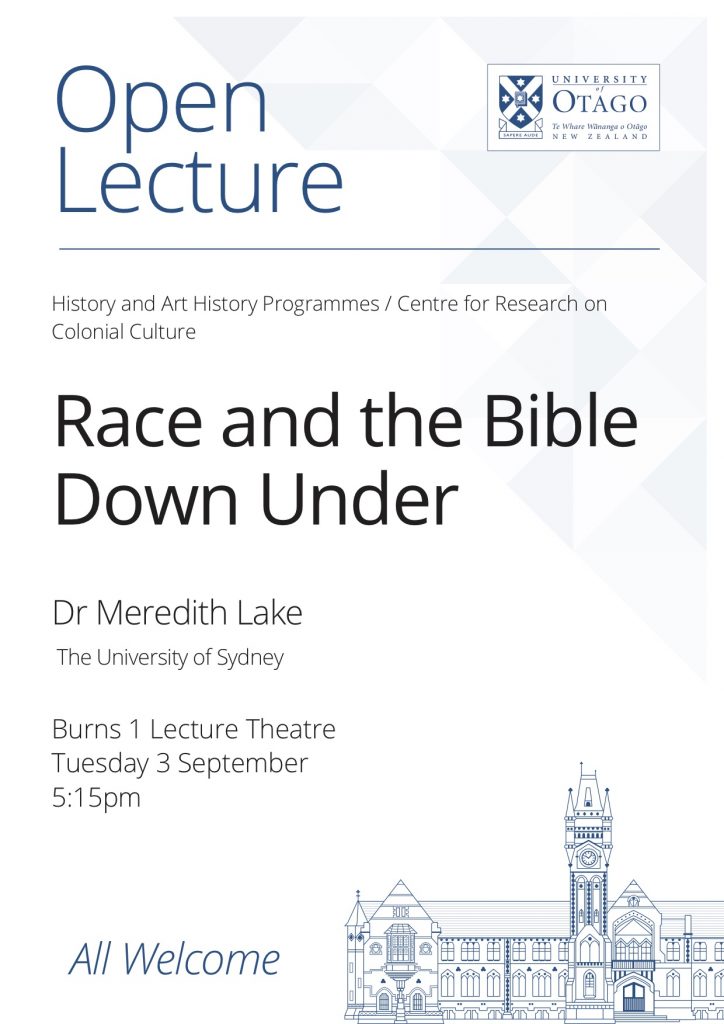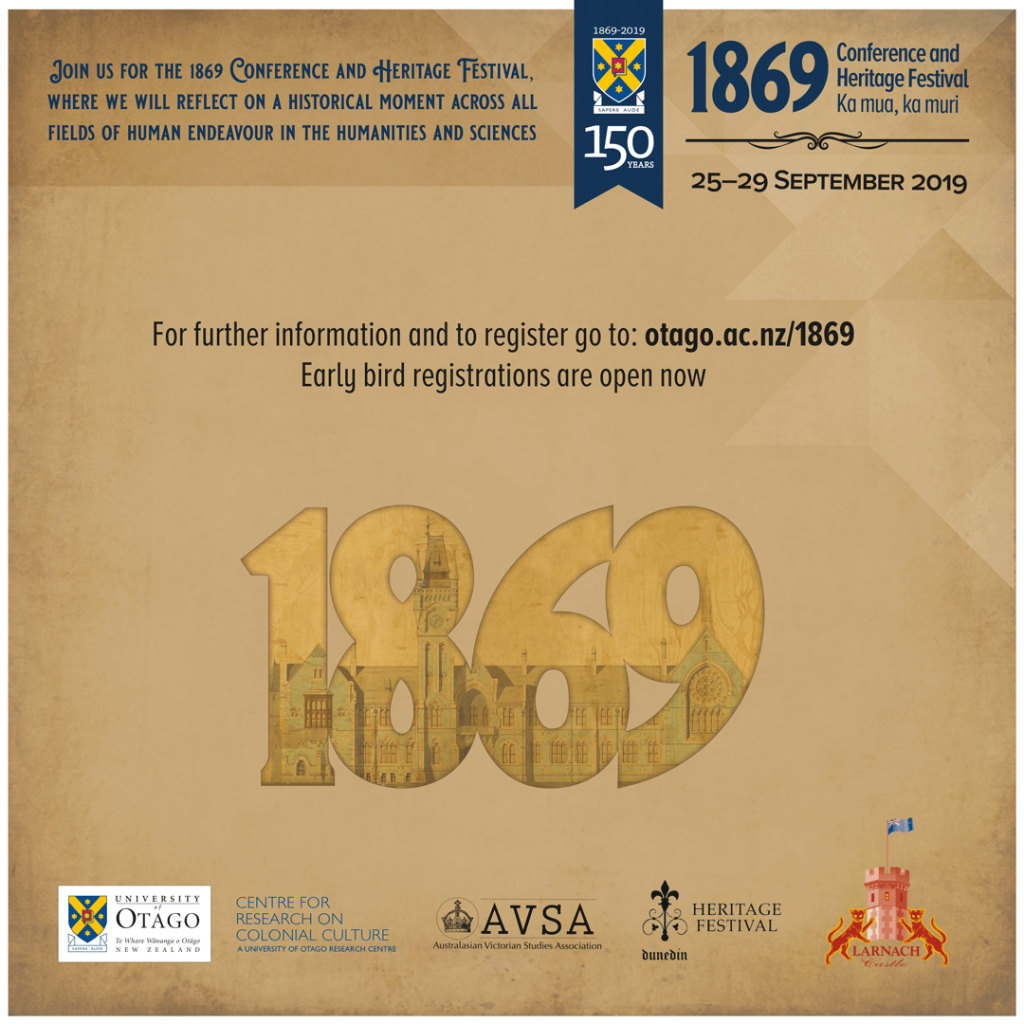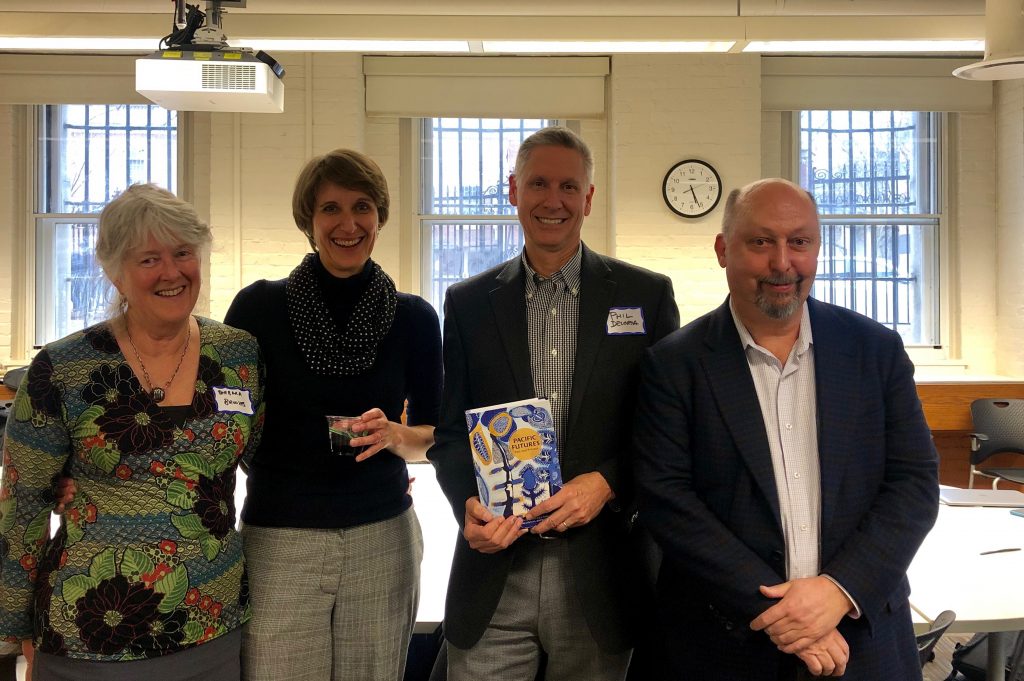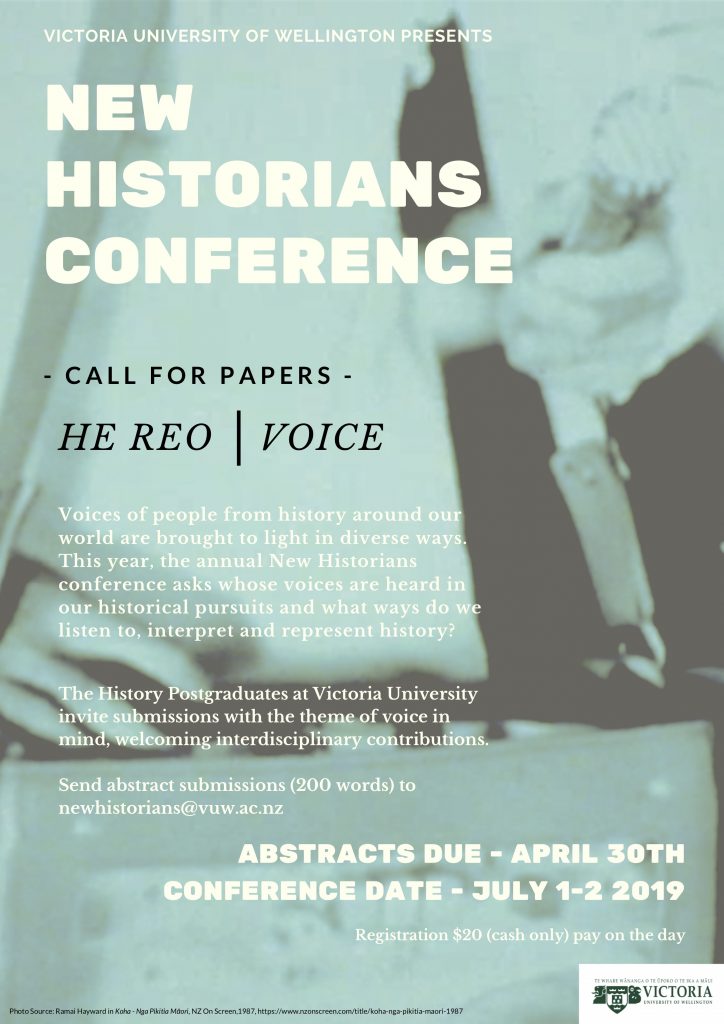Marsden success for Kate Stevens
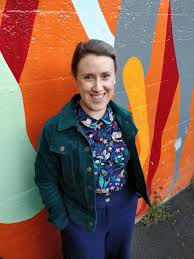 The Centre is really happy for the Marsden success of one of our associate members, Dr Kate Stevens, now based in the History programme at the University of Waikato. Her project, Urban island: Histories of dispossession and belonging in Suva, gained a Fast Start Marsden award in the 2020 round.
The Centre is really happy for the Marsden success of one of our associate members, Dr Kate Stevens, now based in the History programme at the University of Waikato. Her project, Urban island: Histories of dispossession and belonging in Suva, gained a Fast Start Marsden award in the 2020 round.
Kate is a former History student at Otago, who completed her PhD at Cambridge University in 2015, on colonial criminal justice in New Caledonia, Fiji and Vanuatu, then undertaking a postdoc back at Otago with Professor Judy Bennett’s project on the history of coconuts.
This has been a great year for Kate! As well as her Marsden, she won a teaching excellence award at Waikato, and a Camargo Fellowship. Each year, the Carmago Foundation Core Program brings 18 artists, thinkers, and scholars for residential scholarships in Cassis, France as part of its mission to support research in the Arts and Humanities. Kate will be joining the spring 2021 cohort (travel restrictions permitting) for 11 weeks to work on a new project examining the history of smell in the French colonial empire, and its legacies in contemporary products, tourism, and ideas of place. You can read more about Kate’s research on her website.
Congratulations, Kate!
Scotland’s Colony?
The Centre for Irish and Scottish Studies is hosting a one-day FREE symposium at the Hocken Collections on Monday 16 December from 9.30am on ‘Rethinking Otago’s Caledonian Connections’. There’s a great line-up of speakers and topics, which are listed below.
Session 1 (9.30-10.45): Texts and Contexts
Catriona MacDonald (University of Glasgow)
‘Exporting the past, historicising the nation: making histories in Scotland and New Zealand’
Ben Wilkie (CISS, Otago)
‘Scotland’s Antipodean Archipelago: The Otago Settlement and its Australasian Context’
Session II (11-12.15): Scottish Institutions in Otago and New Zealand
Valerie Wallace (Victoria University of Wellington)
‘Scots Law and British Colonialism in New Zealand’
Liam McIlvanney (CISS, Otago)
‘Scottish Presbyterianism in Early Otago: Thomas Burns and D.M. Stuart’
Session III (1.45-3): Print Culture Between Scotland and Otago
John Stenhouse (Otago)
‘Sam Lister, the Otago Workman Newspaper and Denominational Tensions in Late Nineteenth-Century Dunedin’
David Goldie (Strathclyde)
‘From Lee to Lea: Imperial Hybridity in Scottish and New Zealand Poetry of the First World War’
Session IV (3.15-4): A Roundtable discussion on Scotland’s Colony? To what extent was Otago a Scottish Colony? How does Otago complicate our understanding of Scotland’s involvement in Empire?
The amazing “1869” conference
Otago hosted a brilliant hybrid conference this week, the “1869 Conference and Heritage Festival”. By “hybrid” I mean that it was the annual conference for the Australasian Victorian Studies Association, while also celebrating the University of Otago’s 150th anniversary, and sitting alongside the Dunedin Heritage Festival. While the Centre for Colonial Culture was a key sponsor, with Associate Professor Angela Wanhalla as one of the co-convevors (together with Kirby Hallum), a cross section of the university’s faculty was represented on the organising committee. The melange meant that most people engaged with papers that they would normally never encounter at their more usual disciplinary conferences, although this added to, rather than diminished, the event’s success. [See below for photos]
On Wednesday evening, the conference began with an all-women panel, looking at “Heritage through Words, Pictures and Threads”. Chaired by Kirby, the panel featured the novelist and academic, Tina Makereti, who discussed her latest novel, The Imaginary Lives of James Poneke; Lisa Chatfield, the producer for the BBC television adaptation of The Luminaries; Madeleine Seys, author of Fashion and Narrative in Victorian Popular Literature; and Otago’s Catherine Smith, an expert behind the science of traditional Māori weaving. This was a wonderful collaboration, exciting for those interested in the sumptuous garments of the Victorian era, but also drawing a number of different “threads” together. This was followed by a reception held in Te Tumu: School of Māori, Pacific and Indigenous Studies.
1869 was formally opened in the Otago Museum on Thursday (26 September) with a mihi whakatau from Tuari Pōtiki representing both Kāi Tahu and the university, a short welcome from the DVC Research, Professor Richard Blaikie, and an amusing and uplifting speech from the Hon Grant Robertson, an Otago alumnus as well as the current (among other portfolios) Minister for Arts, Culture and Heritage. The PVC Humanities, Professor Tony Ballantyne then introduced the first keynote speaker, Megan Pōtiki of Te Tumu, who discussed how the school established in 1869 contributed to the demise of the speaking of te reo Māori at Ōtākou, just under 30 minutes drive from the city. However, in more recent years the concerted efforts of local people have seen the revival in the language at the kāik.
There are too many individual presentations to mention them all. Most were what one might expect at a history or literature conferences, but also sprinkled with a few science-orientated talks as well. Several stand out, such as the presentation by Dr Ian Chapman on the links between Jules Verne’s From the Earth to the Moon with David Bowie’s Space Oddity – including a live band!; Lyndon Fraser’s swirling PowerPoint while discussing women’s wills in Victorian Canterbury; and Lyall Hanton’s physically animated talk on Joseph Mellor’s 16 million words on the Periodic Table. But the organisers were gratified at the high quality of all the panel presentations.
The conference highlights, of course, were the keynotes. On Thursday evening, people braved a dismal night to listen to Helen Pearson, editor of Nature, a journal that shares a 150th birthday with the university. Helen gave a wonderful talk on the past, present and future of this illustrious journal, noted not just for its academic papers but the science reporting and commentary. The “past” incorporated some of the journal’s many key publications, such as Francis Crick and James Watson’s groundbreaking paper on DNA in 1929, as well as a notable failure, an account on cold fusion. Helen also discussed Nature’s current situation, and how that may change with the growing demand for open-access publications.
Marian Thain, of Kings College London, was unable to make it to Dunedin for the conference, but nevertheless presented on“Cosmopolitanism, Nationalism and the Politics of Parnassian Poetry (1860s-1880s)” on Friday. An exploration of how English poets adapted the ballade, a French poetry genre, the talk discussed how the Parnassian poets’ efforts spawned tensions between those who favoured a more international outlook and those who advocated for more British forms of verse. Marion pre-recorded her video presentation, and invited questions via Twitter both during and after its viewing, which worked really successfully. Indeed, the conference goers included a number of enthusiastic tweeps, with the conference at one point trending up to 5th place in New Zealand’s Twitter rankings. See #otago1869 and #avsa2019.
Conference goers were treated on Friday evening to a bus trip up to the historic Larnarch’s Castle atop the Otago Peninsula. On arrival, just before dusk, the swirl of bagpipes greeted us as we alighted the buses and entered the castle. After newcomers had undertaken a tour of the building and we had all had the opportunity to wet the whistle, we all entered into the banquet hall for a marvellous feast. The “entertainment” for the evening was Professor Liam McIlvanney, who gave a wonderful speech arguing that Rev Thomas Burns, the nephew of the great poet, the first clergyman of Dunedin’s Free Kirk settlement, and first Chancellor of the University, was perhaps not the “censorious old bigot” that secularist historians have labelled him.
Tilly Boleyn, the Curator of Science Gallery Melbourne, was our final keynote to round off the conference. Tilly discussed how hard it was to entice young people (18-25 year olds) into science museums, which are seen as boring and irrelevant. The answer has been to establish “science galleries”, and international network tied to local universities, but whose “displays” are about engaging the public with science and art. Melbourne’s science gallery opens next year, but in the meantime they have run a number of “pop-ups” to prepare the ground. An important feature of this new style of institution has been to allow young people themselves to decide what will be presented, and to employ young people to “moderate” the exhibits with the gallery visitors. This new methodology means curators giving up power, which Tilly states, is both challenging and rewarding.
At the final wrap-up, the AVSA president Mandy Treagus announced that the next AVSA conference will be held in Melbourne at Monash University in June, 2020.
And another viewpoint from the Women Historians Blog.
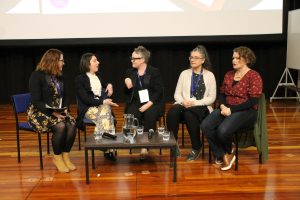
The first evening. Kirby-Jane Hallum, Madeleine Seys, Catherine Smith, Lisa Chatfield and Tina Makereti.
Ali Clarke to give the Michael King Memorial Lecture
Ali Clarke, prize-winning historian and friend of the Centre, will give the Michael King Memorial Lecture on Thursday 19 September. This prestigious annual lecture is sponsored by the History and Art History programme. Ali will speak about her experiences researching and writing her book marking the 150th of the University of Otago. All are welcome!
Race and the Bible Down Under
The Centre is delighted to be co-sponsoring a public lecture by Dr. Meredith Lake, author of The Bible in Australia: a cultural history, which has been short-listed for a major Australian history prize.
Dr. Lake will give a public lecture on 3 September on ‘Race and the Bible Down Under’. This is an open lecture and all are welcome.
1869 Conference and Colonial Knowledges CFP
A draft programme for the 1869 conference is available, and registration is open. Please check out the conference website and make sure you register for what looks like a fantastic programme, including some amazing keynotes and invited speakers.
Also of interest is a CFP for a February 2020 event at the University of Manchester on Colonial Knowledges: Environment and Logistics in the Creation of Knowledge in British Colonies from 1750 to 1950. Check out the Call for Papers here. Abstracts are due 23 August.
Australian and New Zealand Law and History Conference 2019
Victoria University, Melbourne, is hosting the 2019 ANZLHS annual conference from 11-14 December. The theme is Does Law’s Histories Matter? The Politics of Our Disciplinary Practices and features some wonderful keynote speakers, as well as a special ‘From Encounter to Treaty’ panel. If you are interested in submitting a proposal check out the Call for Papers, which has been extended to 21 July.
Pacific Futures book launched
On April 12 &13, Centre member Professor Barbara Brookes attended a workshop at Harvard University entitled ‘Postcolonial Tensions: Science, History and Indigenous Knowledges’ where the volume Pacific Futures: Past and Present (University of Hawaii Press, 2018) was officially launched by Professor Philip Deloria. The book resulted from a symposium held at the Hocken Library in June 2014 jointly sponsored by CRoCC and Professor Warwick Anderson’s Australian Research Council Laureate Fellowship program on ‘southern racial conceptions’. Professor Anderson, currently Gough Whitlam and Malcolm Fraser Chair of Australian Studies (2018-19) at Harvard University, co-convened the workshop with Professor Gabriela Soto Laveaga in the History of Science Department. The three co-editors, Warwick Anderson, Miranda Johnson and Barbara Brookes, were delighted by Professor Deloria’s words about past futures and a celebratory toast was made to the success of the book.
The Centre congratulates Barbara and her co-editors on the launch of this fine volume of essays.
CFPs: New Historians, NZHA, 1869, Encounters and Exchanges
If you are looking to participate in a New Zealand history conference this year then you are spoiled for choice with the New Zealand Historical Association’s biennial conference taking place later his year, as well as an event on the theme of Encounters and Exchanges aligned with the Tuia 250 commemoration programme. There’s also the 1869 conference and heritage festival in Dunedin and the annual New Historians conference.
You’ve got plenty of time to think about a possible contribution. The NZHA Conference (27-30 November) has extended its call for papers to Friday 26 April (read more here). The 1869 Conference (25-28 September) call for papers has also been extended, to Monday 29th April (find out more here). For information on Encounters and Exchanges (1-3 December), check out their website. You have until May 8th to submit an abstract for that event.
Postgraduates in New Zealand history programme should definitely consider attending the New Historians Conference (1-2 July, Wellington). It’s a great opportunity to network and build connections with other postgraduates, and to engage in the latest cutting-edge research. This year the theme is He Reo: Voice and abstracts are due by 30 April.
CfP. Encounters and Exchanges: Exploring the History of Science, Technology and Mātauranga (Indigenous Knowledge)
Our Centre is supporting this forthcoming conference linked to the Tuia 250 commemoration activities taking place across the country this year. Please consider submitting an abstract. Submission deadline is 8 May.
Call for Papers: Encounters and Exchanges
The University of Otago and the Tōtaranui 250 Trust announce a conference to take place in Blenheim, New Zealand from 1-3 December 2019 that will explore the global history of science, technology, medicine, and mātauranga (indigenous knowledge). The conference will be part of a sequence of national events in New Zealand titled Tuia – Encounters 250 Commemoration. These mark the 250th anniversary of James Cook’s first Pacific voyage and the first onshore meetings between Europeans and Māori.
The conference is especially interested in analysing the implications for the global history of science, technology, medicine, and indigenous knowledge. The two major themes central to the Tuia – Encounters 250 Commemoration, ‘dual heritage-shared future’ and the importance of voyaging, pose a range of questions about knowledge, how it is generated, how it is communicated and translated, and how it is entangled with power. The emphasis on the important role of voyaging is consistent with a recent emphasis in the academic field of the history of science on ‘knowledge in transit’ or how science, technology, and indigenous knowledge – involving people, instruments, tools, communications, values, and epistemology – travel from one region to another and are transformed, reworked or contested. We welcome papers or panels that explore these kinds of questions, either within the specific contexts of the southern Pacific in the 1760s and 1770s, or in any other context where encounters and exchanges were integral to knowledge making.
Building on the ‘dual heritage-shared future’ theme of the Tuia – Encounters 250 Commemoration, conference participants will explore recent efforts to analyse reciprocal relationships, the places where exchanges, negotiations, trade, and transactions have taken place, and the important role of mediators or go-betweens in the history of science, technology and indigenous knowledge. Participants will be encouraged to discuss the value of models for interactions that emphasise such concepts as ‘cultural borderlands’, ‘contact zones’, and ‘trading zones’. The conference will be especially interested in exploring the complex role of indigenous people in the history of science. Recent scholarship has emphasised that local people in all parts of the world not only gathered information but also helped categorize and conceptualize the information. Distinctions between amateurs and professionals as well as producers and users are no longer sharply conceived. As a contribution to the recent emphasis on exploring history of science in a global context, the conference will encourage research covering all parts of the world. The organisers plan to publish selected papers in an edited volume on the global history of science, technology, medicine, and indigenous knowledge.
The conference will include keynotes from leading scholars as well as a programme of special public events in the evenings. Notable participants include Naomi Oreskes, Professor of the History of Science at Harvard University; Jane Lydon, Wesfarmers Chair in Australian History at the University of Western Australia; Peter Moore, author of Endeavour: The Ship and the Attitude that Changed the World (2018 book of the year by the Sunday Times); New Zealand filmmaker Lala Rolls, who will present her feature-length documentary film Tupaia’s Endeavour; Damon Salesa, Pro-Vice-Chancellor, Pacific at the University of Auckland; Matariki Williams, Curator Mātauranga Māori, Museum of New Zealand Te Papa Tongarewa; and critic and former Poet Laureate of New Zealand, Ian Wedde.
This gathering will be held in Blenheim, a small city with a rich cultural heritage and which is surrounded by vineyards and stunning scenery. It will be distinguished by the integral role of local iwi (tribal communities), and participants will have the opportunity to learn about and engage with the knowledge traditions and historical experiences of the tangata whenua (people of the land). This is particularly important as the conference will be a forum for a range of vantage points on how knowledge is created and shared and it will enable genuine and critical reflection on the often painful and contested legacy of Cook’s voyages and the histories of empire and colonization that followed.
To submit a proposal, see the instructions on the conference website
The deadline for proposals is 8 May.
To express an interest in the event or to ask a question, please contact: encounters-exchanges@otago.ac.nz
Travel grants will be available for postgraduate students at New Zealand universities and early-career scholars in New Zealand. If you are interested in one of these travel grants, send an expression of interest to the conference email address as soon as possible: encounters-exchanges@otago.ac.nz. More details will be available later about the formal application process.

